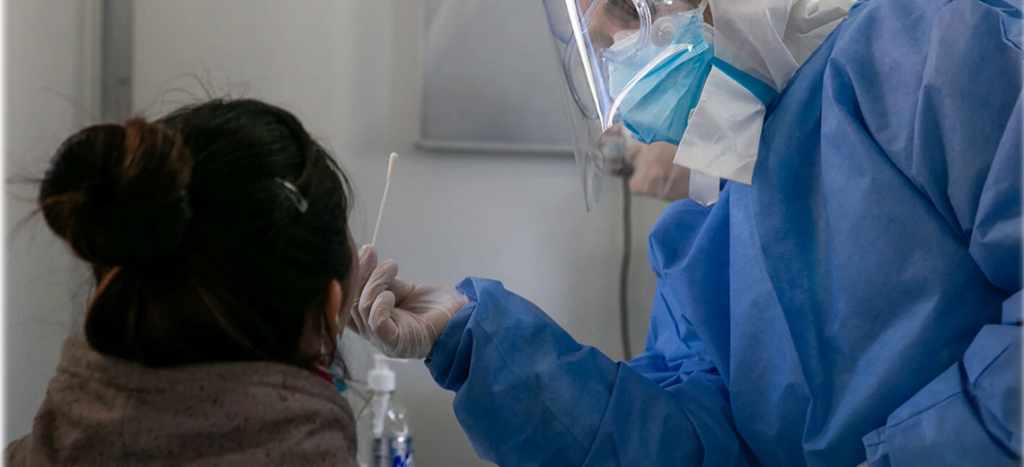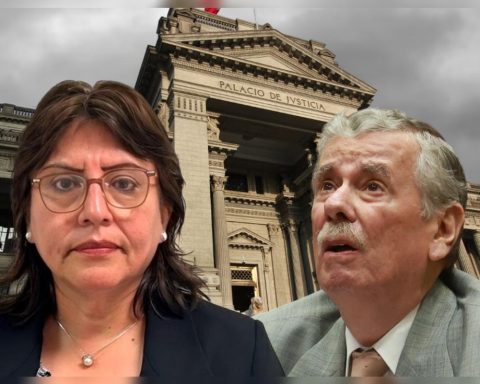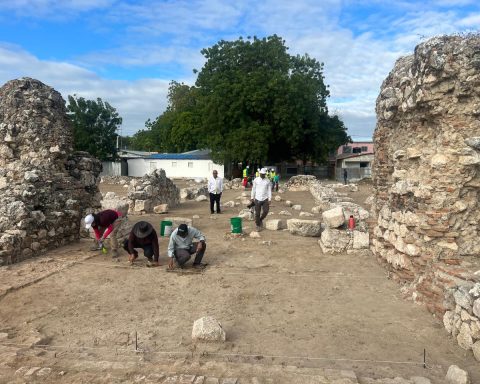Oncology, cardiology, diabetic or kidney failure patients are the ones who required the most palliative care in the midst of the pandemic due to the delay in access to care and treatment due to the tension that the health system exhibited in much of the last two years.
This was maintained by specialists consulted by Télam, who also agreed to pronounce themselves in favor of treating the Palliative Care Law project “as soon as possible”, which already has half a parliamentary sanction.
Although they admit that it is still “difficult to quantify”, the sources consulted by this agency understood that the strain of the public and private health system during the pandemic generated a “postponement” in the care of other diseases, especially chronic non-communicable diseases. However, they pointed out that its consequences “are already evident.”
“No one doubts that the coronavirus broke out as an emergency and that it had to be addressed. But, in the meantime, other pathologies worsened a lot and valuable time was lost,” María de los Ángeles Minatel, executive director of the Association, told Télam. Argentina Medicine and Palliative Care (AAMyCP).
“This delay in diagnoses and treatments was reflected in later complications and loss of functionality that, perhaps, could have been avoided”, considered the expert and urged to “take what was learned” and “avoid stressing the health system” in this third coronavirus wave caused by the Omicron variant.

“Not everything that happens at the end of life is sad. Very beautiful things happen in those accompaniments and discovering that beauty in the midst of pain and sadness is transformative”Marian Jacobs
In the past two years, the pandemic has not only increased the demand for palliative care but has also exposed its importance in “caring for the most human needs of patients and their families,” said Mariana Jacobs, a member of Hospice Kamalaya, an NGO that assists people in vulnerable situations at the end of life.
Palliative care is care focused on guaranteeing “the quality of life of the patient and his family” through a comprehensive and multidisciplinary approach, which attends to “physical needs, as well as psychological, emotional, social and spiritual”Jacobs explained.
When a person – whatever their age – is diagnosed with a serious, chronic and life-threatening illness, they have the right to receive palliative care that helps reduce “the overall experience of suffering” and it is important that this care begins early.
What it is like to seek relief from suffering through listening and accompaniment
The vocation of service, the need to help and the desire to accompany situations of fear and suffering are some of the reasons why palliative care professionals decided to dedicate themselves to this discipline.
In those cases where the disease cannot be cured, There are different alternatives to give the patient decent care and the best quality of life possible..
Alleviating pain, comforting the patient and his family, and accompanying them in the transition to death through listening and presence is what distinguishes health professionals and numerous volunteers dedicated to palliative care.
“Not everything that happens at the end of life is sad. Very beautiful things happen in those accompaniments and discovering that beauty in the midst of pain and sadness is transformative”Mariana Jacobs told Télam, a psychologist dedicated to palliative care for 20 years.
“Personally, my vocation for service is at stake, my need to be present where there is fear, uncertainty and suffering to provide support, tools, listening and accompaniment,” said the specialist.
The end of life is a “hard and difficult” moment, but it is also a unique opportunity to “encounter the truth” and for “reconciliation with life itself, with what we learned and with what we understand as our legacy Jacobs mused.
“What we do is try to add life to the days, it is to give meaning to the life of each patient”explained the palliative care physician María de los Ángeles Minatel, executive director of the Argentine Association of Medicine and Palliative Care (AAMyCP) and head of the Palliative Care Sector of Sommer Hospital.
“It moves me to accompany and help people with presence and listening, beyond therapeutic treatments,” said the specialist, who has been in this area for more than two decades. And he added that “it is a privilege to accompany people at this stage. It is a permanent learning process.”
Patients may have other desires than trying to prolong their lives: in many cases, the concerns are about avoiding suffering, being with their loved ones, enjoying their pets, being aware and not becoming a burden to others, the researchers agreed. professionals in dialogue with this agency.
“In that sense, being able to provide the best possible quality of life for the patient and their significant environment is the most rewarding thing about this job,” Minatel said.
“It is often believed that dealing with death on a daily basis is hard work, but you have to understand that death is something natural that you have to remove the taboo from and train in this to be able to give the necessary discussions and give it another place in public policy. at the end of life”, they concluded.

“Palliative care is not designed to die well, but to live as well as possible in the course of a serious illness, until death comes, which can mean days, weeks or years”added Jacobs, a psychologist specializing in psycho-oncology and palliative care.
“We want to banish the idea that palliative care is for terminal patients,” both specialists assured. And they highlighted that the “fixation of these erroneous ideas” generates that “it is difficult for professionals dedicated to this palliative care to be summoned to intervene at the right time.”
“Most often, action is only taken in the last days or weeks of life. This is a real paradox because research shows that when a patient is accompanied by a palliative care team, they live longer – not less – and with better quality of life,” Jacobs added.
“No one doubts that the coronavirus broke out as an emergency and that it had to be addressed. But, in the meantime, other pathologies worsened a lot and valuable time was lost”Maria de los Angeles Minatel
According to the WHO, every year some 40 million people in the world need palliative care from pathologies such as cancer, pulmonary or cerebrovascular diseases and dementia, among others.
However, in Argentina only 10% of people who require palliative care can access it, which means that “9 out of 10 Argentines die badly,” confirmed the psychologist, who considered that this suffering is “avoidable.”
In this context, they stated that it is “scandalous” not yet having a law that guarantees “universal access to palliative care”, and urged to “care for people who suffer” and deal “as soon as possible” with the project of the National Palliative Care Law, which already obtained half sanction in the Senate in October 2020.
The specialists emphasized that “alleviating pain and suffering and guaranteeing the dignity of patients” is a human right that “is not being fulfilled in Argentina.”
The bill aims to reverse “chronic problems” of the discipline, such as “the lack of paid positions and appointments at the hospital level”, as well as the increase in the “scarce” number of teams throughout the country, they detailed.
“Training in the health curricula of the different undergraduate disciplines about what palliative care involves is very important, because even though there are no trained teams, palliative care is done the same and the idea is that it be done well,” he said. Minatel.

They also highlighted that many intensive care hospitalizations currently involve “a wasted resource” that could be avoided with early palliative care, for which they highlighted the need for the law to provide for “the correct dissemination of this right.”
“The cost of not making the right decisions at the right time is very high” for patients, the specialists concluded.

















